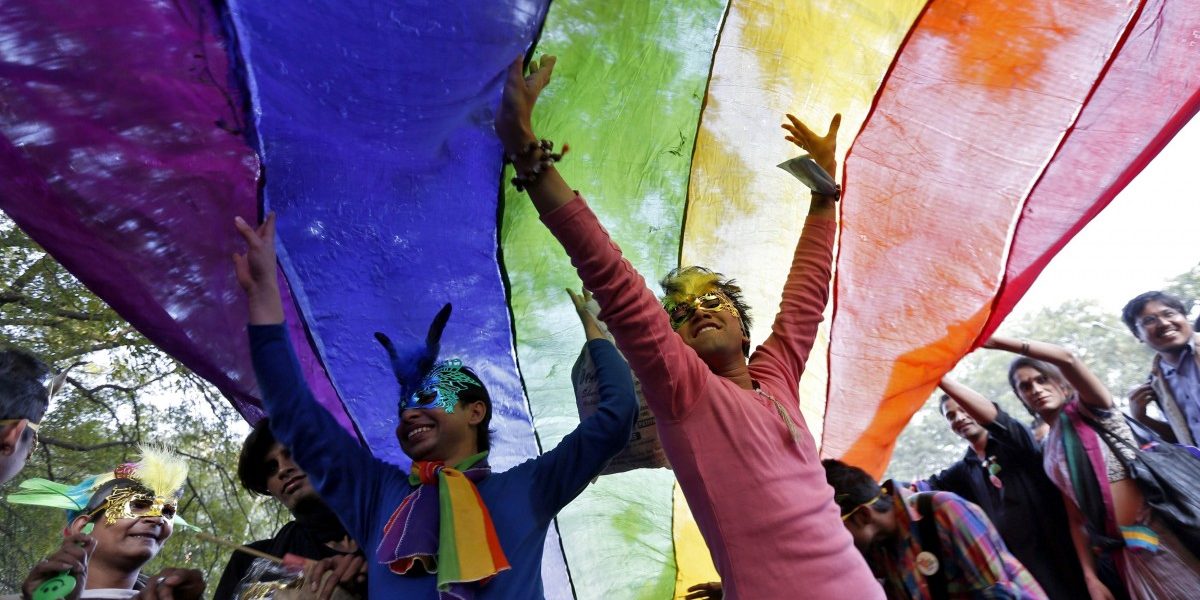Yesterday, September 6, the Supreme Court delivered a landmark verdict on Section 377 of the Indian Penal Code, decriminalising consensual intercourse between two persons of the same gender (on the basis of privacy and human dignity) – a longstanding and most visible demand of the LGBTQIA+ movement in India.
There have been some major gains. LGBTQIA+ individuals are no longer criminalised on paper, to the police and to the courts. However, there are some limitations too.
It is currently only applicable for consensual same sex acts, and there has been nothing put forward legally by the judgement about same sex marriage.
For same sex marriage to be legalised and gain social legitimacy, activism regarding LGBTQIA+ issues has to reach India’s villages – just like it did with inter-caste marriage, and that’s a battle we’re still fighting.
In the US, in states that were the earliest to enact same-sex civil union laws, “religious freedom” was considered a valid pretext for discrimination against the LGBTQIA+ in this matter. India is no stranger to the religion argument either and it’s something we’ll have to work hard to counter.
Also read: Goodbye Section 377
Sometimes, political forces use a liberal legislation or judgement to create strong public reaction that will enable them to pass laws that undercut the judgement or curry favour from specific political vote banks. For instance, Bill Clinton passed the Defence of Marriage Act that defined the institution of marriage as “between a man and a woman” right around the time that several liberal northeastern states were demanding laws for same-sex civil unions – a truly Machiavellian, politically engineered move. It wouldn’t be surprising if politicians decided to take a leaf out of the same book to garner support from certain factions.
Now that the law is gone, educational institutions and workplaces will need new sexual harassment guidelines as well as sensitisation programmes to truly adopt the spirit of the judgement into social practice.
Our everyday perspective on patriarchy and abuse will also need to be queered – we’ll need more inclusive ways to discuss power relations and forms of abuse between two individuals, regardless of their sexual and gender identity. We’ll also have to work towards gender justice, equal-quality counselling and the redressal of disputes.
The judgement, although monumental, focuses on the sexual part of homosexuality, not on other rights that a queer individual might be entitled to.
Also read: Here’s What It Took To Organise Bhubaneswar’s First Pride
Nothing will truly change unless the social stigma attached to non-hetero sexuality is overturned at the level of the family. A judgement or a new law is a good thing, but it’s only the start to the real struggle. Caste was abolished ages ago – it’s still all-pervasive.
On the same day, that this judgement was passed, upper caste groups called for a bandh to abolish the SC/ST Atrocities Act. They are attempting to bring various OBC groups on board. Discrimination against LGBTQIA+ people will perhaps not reach its full, filthy potential while most people are still in the closet, instead it will silently discourage people from coming out. LGBTQIA+ rights are fundamentally about social and gender justice, but a fragmenting of the oppressed keeps occurring.
Developing avenues to enable financial independence – in the form of non-discriminatory employers and bureaucracy – is the next step we must focus on in this fight for social dignity and inclusive political enfranchisement.
It’s a landmark judgement, and an important, long overdue step. But there remains a long way to go for a full, assertive, dignified existence. The struggle continues!
Saib Bilaval is a PhD scholar in Modern and Contemporary History at Centre for Historical Studies, Jawaharlal Nehru University.
Featured image credit: Reuters/Mansi Thapliyal

